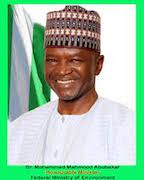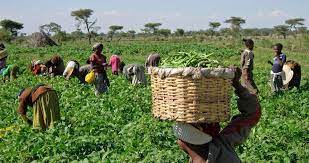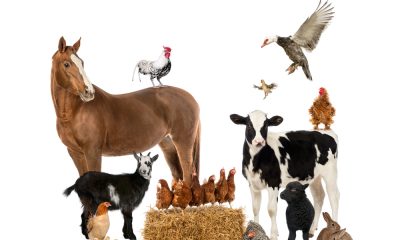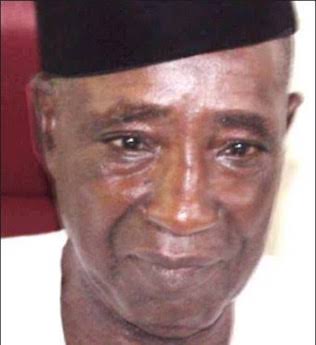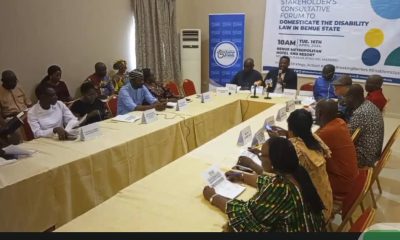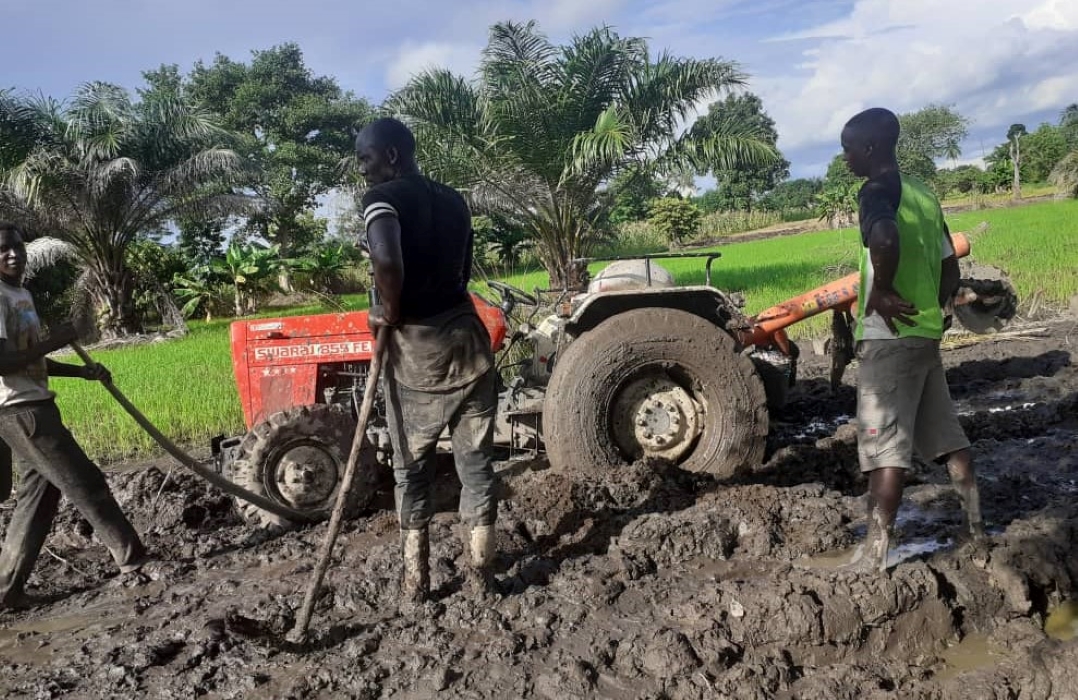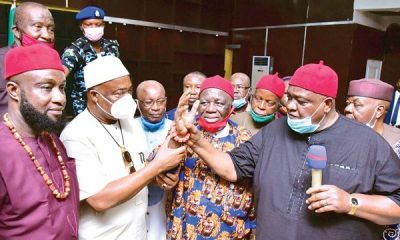Agriculture
Northern Governors call for Implementation of National Livestock Transformation Plan
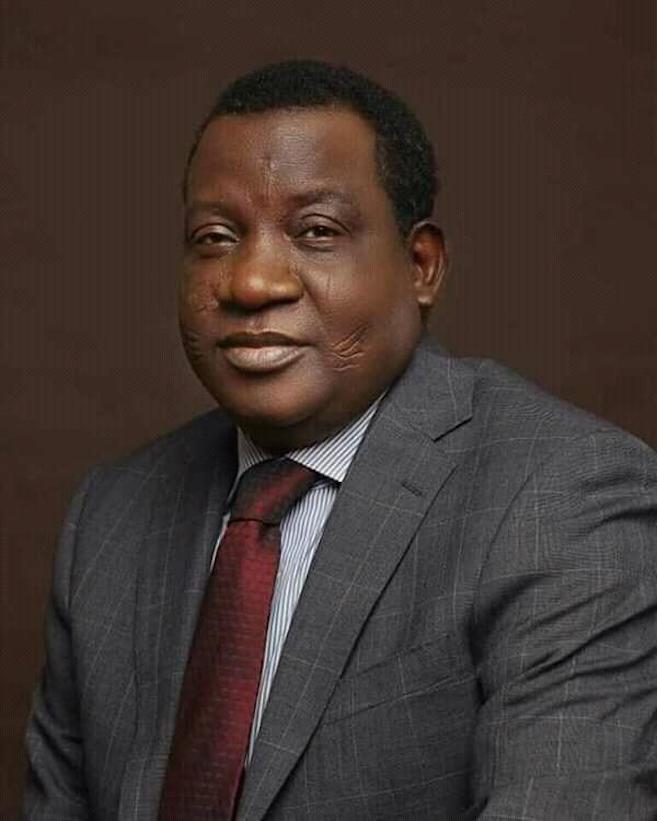
The Northern Governors Forum has called for the speedy implementation of the National Livestock Transformation Plan(NLPT).
They also called for the immediate implementation of the State Level Project Socialisation on Livestock Productivity and Resilience Support Project (L-PRES), in the region .
The governors made the call at a meeting of the forum’s committee on Agriculture on Wednesday in Abuja.
Briefing newsmen at the end of the meeting , the Chairman of the forum, Gov Simon Lalong of Plateau said that the speedy implementation of the programmes would help the region handle some of the challenges in its agriculture sector .
The NLPT is a federal government project being implemented in some states to transform the livestock industry and also address crisis of farmers and herders , while the L-PRES programe is targeted to address low investment in the livestock subsector .
“Agriculture is our hope in the north and for a while we saw alot of delay in implementation of some of these programmes , and so we had to call a meeting especially with the introduction of the new outfit L-PRES
“We(northern governors) all agreed for all the northern states to key in to the L-PRES and also part of the NLPT, which is already being implemented,” he said .
He explained hope that the speedy implementation of the programme would also help in handling the security challenges farmers were experiencing in their activities.
“We are not sleeping on it. We still want to go back to see how to help farmers. This is the time that farmers would need alot of our support and assurance,” he said .
The chairman said concerns were also raised during the meeting on the major outfit of the region, the Northern Nigerian Development Company particularly on its textiles industry .(NAN)
Agriculture
Mrs Soludo Launches Organic Garden Competition in Anambra Secondary Schools

Wife of the Anambra State Governor, Dr Nonye Soludo, on Saturday launched the organic garden competition in secondary schools in Anambra to encourage children to learn more about food and farming.
Soludo, while addressing Healthy Living Teacher Ambassadors in Awka, said the organic garden competition would help teach children the importance of food and farming and its impact on their lives.
She described organic farming as a process that involved the use of natural food sources and nutrients for farming practices without fertiliser or other chemicals.
“This competition is part of the Healthy Living with Nonye Soludo Campaign to achieve a culture of health consciousness, drive organic agriculture with emphasis on food safety and sustainable living.
“It will help our students learn valuable lessons about where their food comes from, the benefits of eating fresh and healthy foods, and how to care for the environment.
“Vegetable seeds will be distributed to schools and at the end of every term, schools with the three best gardens will be rewarded.
“Our children at a tender age will start to appreciate agriculture as an essential way of life and the need to be part of building solutions that foster healthy foods in the society,” she said.
Also speaking, Dr Afam Obidike, the state’s Commissioner for Health, said the schools garden competition would increase student’s knowledge about the nutritional value of foods.
In her remarks, Prof. Nkechi Ikediugwu, Chairperson, Post Primary Schools Service Commission, said schools in the state would offer Health Living lecture every Wednesday after break to help students learn how to be healthy and grow into healthy adults.
Reports says that the programme featured distribution of okro, carrot, pepper, tomatoes, watermelon and cucumber seeds to the school teachers to begin the process of their school gardens.(NAN)
Agriculture
Food Inflation: Agric Ministry Receives 2.15m Bags of Fertilisers from CBN

The Ministry of Agriculture and Food Security has received 2.15 million bags of assorted fertilisers from the Central Bank of Nigeria (CBN).
Reports says that the assorted fertilisers would be distributed to farmers to curb food inflation in the country as well as boost food production and food security.
Sen. Abubakar Kyari, Minister of Agriculture and Food Security, who spoke at the event on Wednesday in Abuja, expressed gratitude to the President Bola Tinubu and CBN for the gesture.
Kyari assured the CBN Governor, Mr Olayemi Cardoso, that the inputs would be judiciously used and delivered to the intended farmers.
“Thank you very much; this is more than goodies; 2.
15 million bags of assorted fertilisers; we want to express our profound appreciation on behalf of the Nigerian farmers and President Tinubu.“Also, we appreciate you, our dear brother, the CBN governor and your team for giving us this wonderful gift.
“I want to assure you that it will be judiciously used and it will be delivered to the last man and intended farmers where they can reap the benefits of this huge gesture.
“They (farmers) can in turn cultivate and produce more that would stem the galloping food inflation that is affecting our country.’’
He said that challenges such as food prices, food cultivation, flooding and climate change among others had impacted on agricultural production in the country, adding that insecurity was on decline.
“l am happy to say that those things I mentioned are on the decline; insecurity is on the decline and we are mitigating against climate change.
“We are sensitising farmers to go into dry season agriculture.’’
Kyari said that there was need to need to boost and repair irrigation infrastructure so as to have all year round farming.
“Which (irrigation) is even more secured than that of the wet season farming,” he said.
Earlier, Cardoso expressed enthusiasm for the visit and presentation which was to address the issue of escalating cost of food in the country.
According to him, food prices are crucial components of inflation.
He said that the CBN aimed to enhance its partnership with the ministry to improve food production.
“This is precisely why we convene today to strengthen our collaboration with the Ministry of Agriculture to mitigate the surge in food prices.
“The gesture is in alignment with our strategic shift towards focusing on our fundamental mandate.
“The CBN has veered away from direct quasi-fiscal interventions and transitioned towards leveraging conventional monetary policy tools for executing monetary policies effectively.
“In this light, we aim to extend our support and foster closer ties with Ministries, Departments, and Agencies (MDAs) with the mandate and expertise to undertake these critical initiatives.
“Consequently, we aim to enhance our partnership with the Ministry of Agriculture, bolstering your endeavours to enhance food productivity and security, ultimately curbing food inflation and fortifying our pursuit of price stability.
“In pursuit of these shared goals, we are delighted to announce the allocation of 2.15 million bags of fertilisers valued at over N100 billion which we humbly hand over to the Ministry of Agriculture and Food Security.
“This contribution from CBN aims to amplify food production capabilities and foster price stabilisation within the agricultural sector,” he said.(NAN)
Agriculture
Nigeria will Soon Witness Food Sufficiency, Price Reduction – NACGRAB
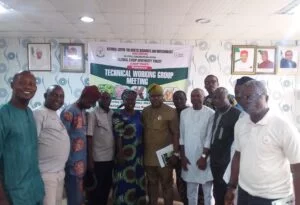
The National Centre For Genetic Resources and Biotechnology (NACGRAB), says Nigeria will soon witness sufficiency and price reduction in food commodities.
The NACGRAB Acting Director, Dr Anthony Okere, stated this at the end of a 2023 Technical Working Group (TWG) meeting on Seed For Resilience (SFR) organised by NACGRAB in collaboration with Global Crop Diversity Trust (Crop Trust) in Ibadan.
He said SFR came into existence in 2021 to improve the efficiency of NACGRAB genebank and enhance the use of conserved genepool by farmers and other users of genetic resources in Nigeria.
Okere said the project had exposed the diversity of sorghum, cowpea and other crops to farmers and other users in Nigeria in order to mitigate the effects of climate change and boost farmers’ productivity and ensure food and nutrition security in Nigeria.
He said that the project was successful, based on feedbacks from farmers and other users that the good quality seeds planted this season yielded well in multiples, compared to year 2022.
“Farmers now feeling free to come to NACGRAB genebank to demand more diversity of materials that could help them to get higher production which in turn would lead to food sufficiency and price reduction in Nigeria soon.
“There are availability of quality seeds in NACGRAB genebank that farmers can plant and generate good yield due to success of this project.
” Various farmers can now dwell in more crops instead of one or two crops; this project has made it possible for farmers to plant diversity of quality seeds and generate good yields which in turn will lead to food and nutrition security in Nigeria,” Okere said.
Dr Olabisi Alamu, the Activity Team Leader, User engagement of the project, said that NACGRAB and other stakeholders had been engaging with farmers about the project in the past three years.
Alamu said that farmers in Oyo, Niger and Kano states had been exposed to diversity of seeds of cowpea, sorghum accessions and other seeds conserved in the genebank.
He said that most farmers now had access to the seeds and were now using them to enhance production, increase their yields and income generation.
” In all the three states, we have 49 cluster groups; the Seed for Resilience (SFR) project has impacted over 1,000 farmers over the past three years.
“Some of them have been adopting it as a result of good quality, traits, early maturity varieties, high yields among others,” Alamu said.
The team leader said that some of the farmers had also multiplied the seeds they selected in year 2023 and as well disseminated it to other farmers, to enhance the use of the materials in the genebank.
The Oyo State Chairman of All Farmers Association of Nigeria (AFAN), Mr Abass Adewumi, said the project had exposed them to a lot of things they needed to know and apply on their farms for crops to germinate well.
Adewumi said that the research project had also exposed them to know suitable seeds for planting in certain environment which could give better yields, to maximise profit and shun the old ways of planting seeds. (NAN)

